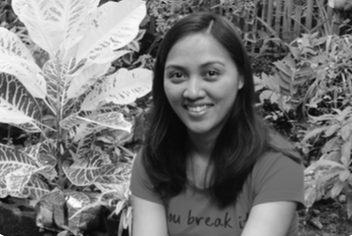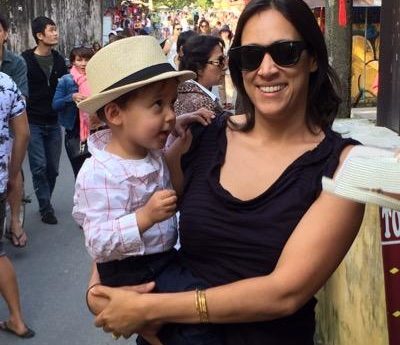The Unitarian Universalist Service Committee advances human rights through grassroots collaborations.
Stories of Hope 2015: Irish Grace M. Ramirez
November 8, 2015

This story of Irish Grace M. Ramirez is presented as part of UUSC’s Guest at Your Table program.
With years of experience as a public health nurse in some of the most impoverished communities in the central Philippine islands of Cebu and Bohol, Irish Grace M. Ramirez thought she was prepared for anything. But that was before November 8, 2013.
Before Typhoon Haiyan, the most powerful storm to make landfall in recorded history, cut a devastating swath through the island nation, killing 7,000 people, leveling entire villages, and displacing 6 million people.
Before she understood how profoundly traumatizing it is to lose everything — one’s home, crops, livelihood, entire community. And before she realized how her years of medical training and experience were insufficient to relieve the debilitating trauma afflicting so many of her people.
But UUSC has long understood that healing those hidden wounds is one of the most important and difficult challenges in responding to any large-scale humanitarian disaster. In the Philippines, in partnership with the nonprofit Trauma Resource Institute (TRI), we are deploying a successful new approach to this longstanding and difficult challenge.
We first brought TRI to the Philippines in January of 2014 to conduct a series of train-the-trainer workshops in what is called the Community Resiliency Model (CRM), which gives first responders and other caregivers the tools they need to help displaced communities recover from the profound emotional trauma that accompanies disaster.
Irish Grace was one of the first participants — and she immediately not only understood but personally experienced CRM’s effectiveness. Although she had not lost her home or any loved ones,
Irish Grace had been deeply affected by the typhoon, especially by the emotional dif culty of giving care to so many devastated survivors. Today she credits CRM with giving her the strength to maintain her own resiliency in the face of so much suffering.
That personal experience, combined with her training in public health, made her the ideal coordinator to bring CRM to psychologically shattered communities: “Because of my own trauma, I was able to empathize with them.”
Irish Grace put together a team that, over six months from late 2014 through early 2015, trained more than 100 community health workers throughout her region in the Philippines. Part of what makes CRM so effective is that it focuses on the connection between individuals and their communities, and the skills it develops are easily passed throughout those communities. That means the healing process that she and her team delivered is “going viral”!
As the secretary of the Philippine Association of Community Resiliency Model Trainers, Irish Grace today works with other organizations interested in this novel approach. And the more she learns, the more grateful she is that UUSC brought this novel approach to her country: “I saw in the communities how thankful they were with the CRM trainings. It gave them a new hope.”
Go deeper and take action:
- Learn more about all of UUSC’s work in the Philippines
- Make a donation to UUSC
